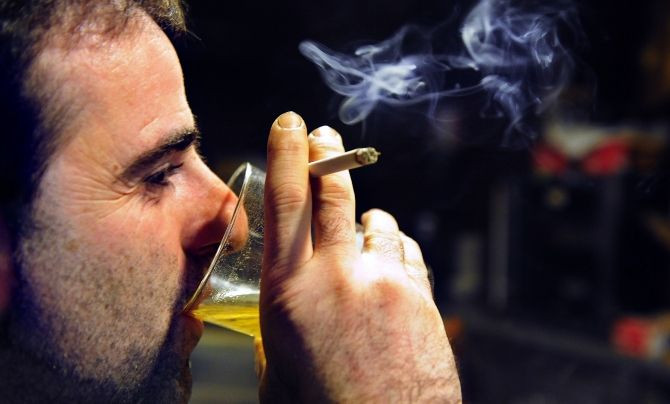New Drug Compound to Treat Alcohol Dependence Takes the Pleasure Out of Drinking

Soon, a new drug might take the pleasure out of drinking in people who are excessively dependent on alcohol.
Researchers have found a compound that could reduce alcohol dependence by balancing levels of a chemical messenger that makes people feel happy after drinking.
The compound called OSU6162 has already shown to be effective in animal models. According to researchers, the compound can balance the levels of dopamine thus reducing the need to drink more alcohol.
"OSU6162 has the unique ability to stabilize the brain's dopamine levels by raising low and decreasing high levels, which makes it particularly attractive for the treatment of alcohol dependence. We tested OSU6162 on rats that had consumed alcohol for a long time because their brain reward system works in much the same way as ours," said Pia Steensland, associate professor at the Department of Clinical Neuroscience at Karolinska Institute in Sweden, lead author of the study, in a statement.
The compound targets dopamine, a chemical messenger that is triggered after indulging in activities that give us pleasure like food, sex or exercise. Alcohol works the same way in giving us a feeling of euphoria after drinking, but over time the system gets blunted and lesser amounts of dopamine is released in the brain. This causes strong cravings for alcohol in order to get more dopamine. The compound balances the dopamine levels so that the brain no longer associates alcohol as a reward and eventually the cravings decline.
Researchers tested the compound on rats. The study rats had free access to water and alcohol. After a few days some of the rats started drinking in large quantities while others preferred water.
All the rats were then treated with the compound OSU6162. The result was that rats that were dependent on alcohol reduced their intake over time and began to prefer water instead of alcohol.
Also, the compound was able to reduce the chance of a relapse. The study rats were kept in special chambers that were designed to trigger a relapse. However, after being treated with the compound, rats displayed less enthusiasm to drink alcohol again.
"Our results suggest that OSU6162 blocks the increase in dopamine levels, and thereby prevents the rewarding effects of alcohol. The dopamine levels decrease in the reward system decrease after long-term alcohol abuse. Our rats' lack of interest in alcohol after treatment with OSU6162 would suggest that the compound can stabilise or normalise the disrupted dopamine levels induced by long term alcohol consumption," said Steensland.
The study was published in the journal Biological Psychiatry.



























